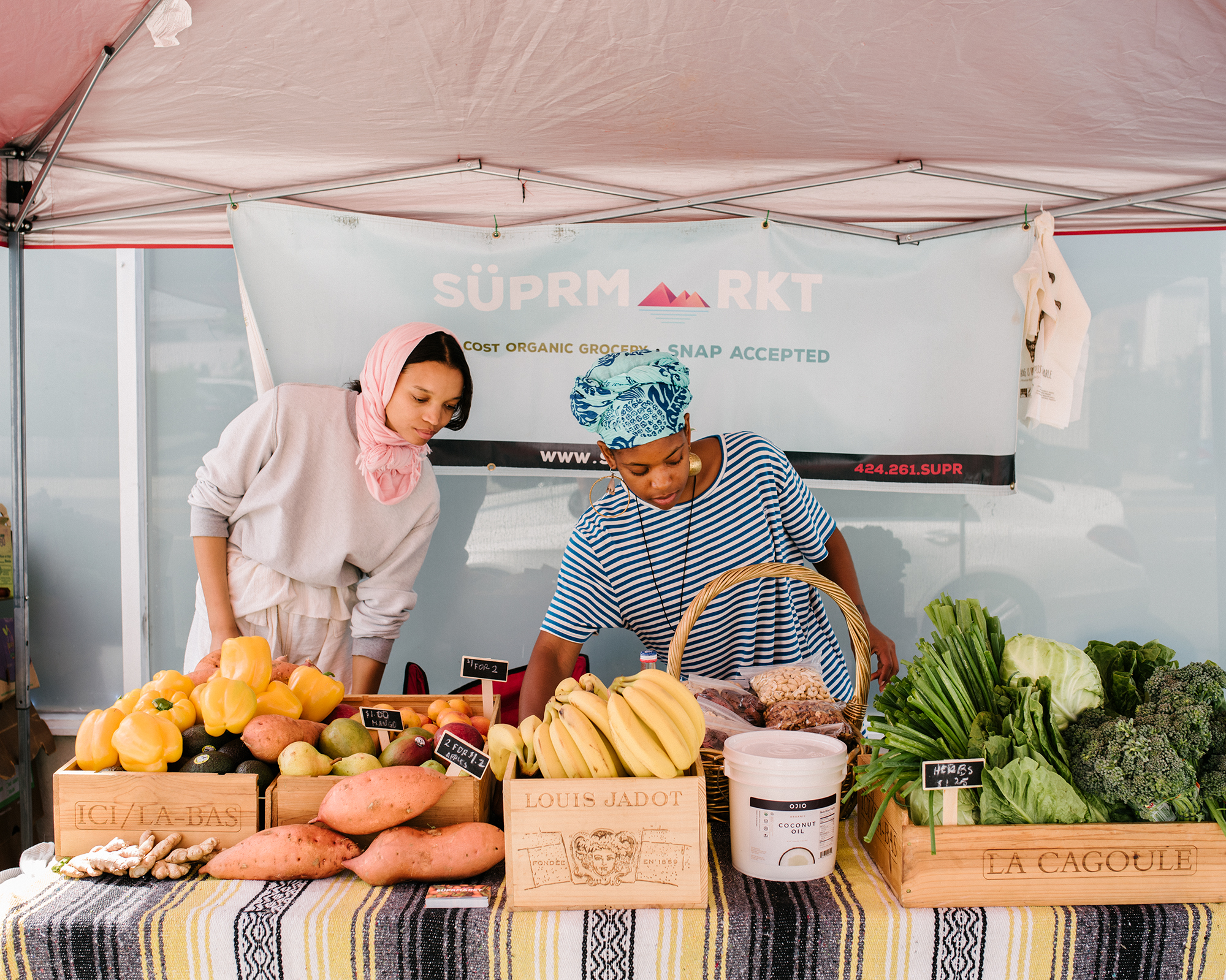
When I ask twenty-eight year old Olympia Auset where she honed the skills that power SÜPRMARKT—the organic pop-up grocery service she founded, which provides fresh produce in South Central Los Angeles’s food deserts—she doesn’t hesitate: “It’s important for people to know that you don’t always have to know how to do something, you just have to want to do something.”
This desire guided Auset to seek ways to overturn the broken food access pathways in the community where she grew up. “[Food] is the most fundamental form of resistance,” she says. “If you can’t change your diet, your personal habits, for the better, there’s no way you can change the world.” Yet only sixty grocery stores serve the 1.3 million people who reside in South Central LA, compared to the city’s heavily gentrified west side, which boasts 50 grocery stores for just 600,000 people. Auset’s sights are now fixed on expanding SÜPRMARKT into a thriving health store to provide nourishment to the neighborhood, which qualifies as one of America’s numerous food deserts.
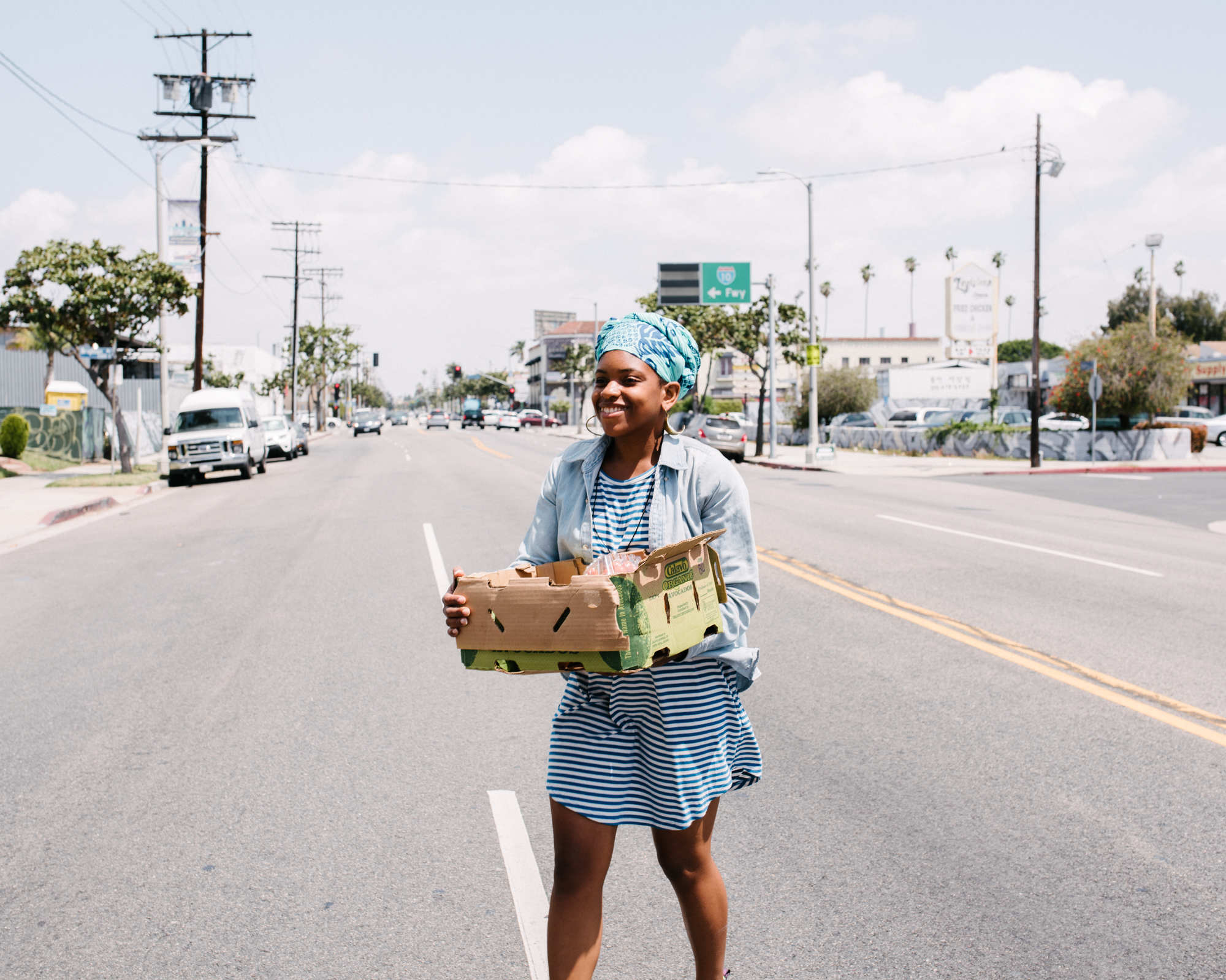
In South Central, even people who can afford to pay for quality fresh produce have nowhere to buy it. Fast food joints and liquor store beverages are the easiest, closest, and most affordable options for nourishment here, as is the case in most of the food deserts in the US. As a result, heart disease, diabetes, cancer, and many other diseases occur at much higher rates in these areas. But Auset knows this is an entirely fixable problem: there’s plenty of food being produced here in California; it’s just a matter of getting it to the people who need it most. The revolution to abolish food deserts and end food apartheid is well underway, and SÜPRMARKT is a part of that.
In 2016, Auset found herself traveling two hours by bus just to get the produce she needed to take care of herself and her body. No longer willing to accept this fundamental inequity in food security, she created SÜPRMARKT. In the past two years, the service has delivered over 25,000 pounds of produce to the people in LA who need it most. Auset’s passion for food sovereignty, rooted in practical solutions, is contagious—and growing.
The day that community activist, rapper, and beloved Los Angeles visionary Nipsey Hussle died—blocks from where Mr. Wisdom, the only healthy food restaurant in South Central, had just been sold and shuttered—Auset realized it was time to take SÜPRMARKT to the next level. Auset plans to purchase the Mr. Wisdom property and establish SÜPRMARKT as a store selling organic produce, prepared meals, and safe household products that would transform the health and wellbeing of her community. She’s just shy $111,000.
Read on for Auset’s story in an exclusive interview, and contribute now to the campaign that will make history to end food apartheid in communities across the nation. Any amount helps.
I spoke with Auset on June 5, 2019. Below is a transcription of our interview, lightly edited for length.
Lily Diamond: Where did you grow up, and what did food mean to you as a kid?
Olympia Auset: I’ve lived all across Los Angeles from when I was really little, but a big part of my formative years was spent in South Central. That’s where I lived when I was going to elementary school and middle school and a good part of high school. I loved food and would eat pretty much anything, they used to call me the human garbage disposal because I could way more than somebody my size should be able to eat.
At the same time—and I haven’t started to reflect on this until recently—I was lactose intolerant from the time I was born, pretty much. When I was two years old, I would have to get rushed to the ER after eating ice cream. I would be throwing up, having diarrhea; I had a really acute food allergy. As I got older, [I continued to eat dairy] because the medical establishment encourages people to drink milk—even though 70% of the planet, their bodies can’t digest milk. That should have been a wake up call to my parents and me from the beginning, but it wasn’t. But the doctor will tell you that you’re going to grow into it—you’ll get older and you’ll be able to eat dairy, just try in small doses.
What were the foods you learned to love in your family? Do you think of the food you ate growing up as healthy?
My childhood wasn’t a traditional childhood, and the main times I would come together around food with other people would be during the holidays. We would go over to an aunt’s house and there would be a huge meal there with soul food—mac and cheese and greens and yams, and things like that. I always looked forward to that, because even though I’m not an only child, I mostly grew up as one. So I have those memories, but I also have memories of going through fast food lines. I definitely ate out a lot and ate a lot of tv dinners.
Another big part of my experience with food as a child was school lunches. Not that I didn’t have food at home, but I looked forward to school lunches, and what was available there.
Me too. I grew up with hippie parents, and because there were so many foods we couldn’t eat in my household, anytime there was like “normal peanut butter” and “normal jelly” I would get so excited.
I had similar experiences, where I wasn’t allowed to eat certain things at home, so when I would be out, I could eat pizza and things like that. It was a mix, it wasn’t extreme health nut—it wasn’t like I had hippie rules—but I definitely was restricted in a way that made me want to eat whatever I could when I was away from home.
What were those restrictions for you?
It was kind of funny, because it’s not like we couldn’t eat meat. Just no junk food and no candy and no chips or processed food. At the same time, we would still go to Jack In The Box, but we would get a chicken fajita instead of a burger. But they were really trying to keep me away from junk food. It’s crazy how many snacks and candies are out there targeted at children. As an adult I can totally see why parents would freak out; it’s a tidal wave of stuff that they’re wanting to feed your child. So they just tried to keep me away from the Hot Cheetos and everything else that was so readily abundant for children.
Did the way you eat change as you grew up? How did that happen?
The big change with the way that I ate happened when I was a freshman [at Howard University], and I started to learn about what food really is, how important it is, the importance that it plays in liberation, how many people die because of the food they eat. I started to become more aware and informed about food and our food system in this country.
I ended up going vegan my first year in college. I just wanted to give it a try. I had a couple vegan friends, and I was like, “Oh, maybe I’ll try to be vegan by the end of ‘09.” But then I tried it, and it only took a couple of months, and it wasn’t that difficult, and I felt better. And it’s been ten years now. That was a really big turning point for me. It definitely coincided with me becoming passionate about food. I’m mostly raw-vegan now, for about two years.
When did you decide to try a raw diet?
When I was in college, a friend of mine introduced me to a man named Khepra who owned a raw restaurant in DC, and he attended [Howard University], too. They introduced me to him, and as I’m looking at him, I’m like, “Oh, maybe he’s like 25 and he graduated a few years ahead of us.” But at the time, he was 44 years old. As soon as I knew he was 44 and looked 25, I knew that [the raw diet] worked, and I knew that was something I would do.
Food is very spiritual for me, and as I was growing as a person, growing spiritually and energetically, the foods that I could eat would change, and my body would push me in different directions. I started off vegan, but eventually my body was like, “No, we don’t want to eat processed food anymore.” So a similar thing started to happen with cooked food. I was changing energetically in such a way that eating fresh food would be better suited to my vibration.
So from that point I was like I’ll be at least 70% raw, when I met [Khepra], but the thing that really triggered it was my body saying it’s time to do this now. And that was a lot more challenging than just going vegan.
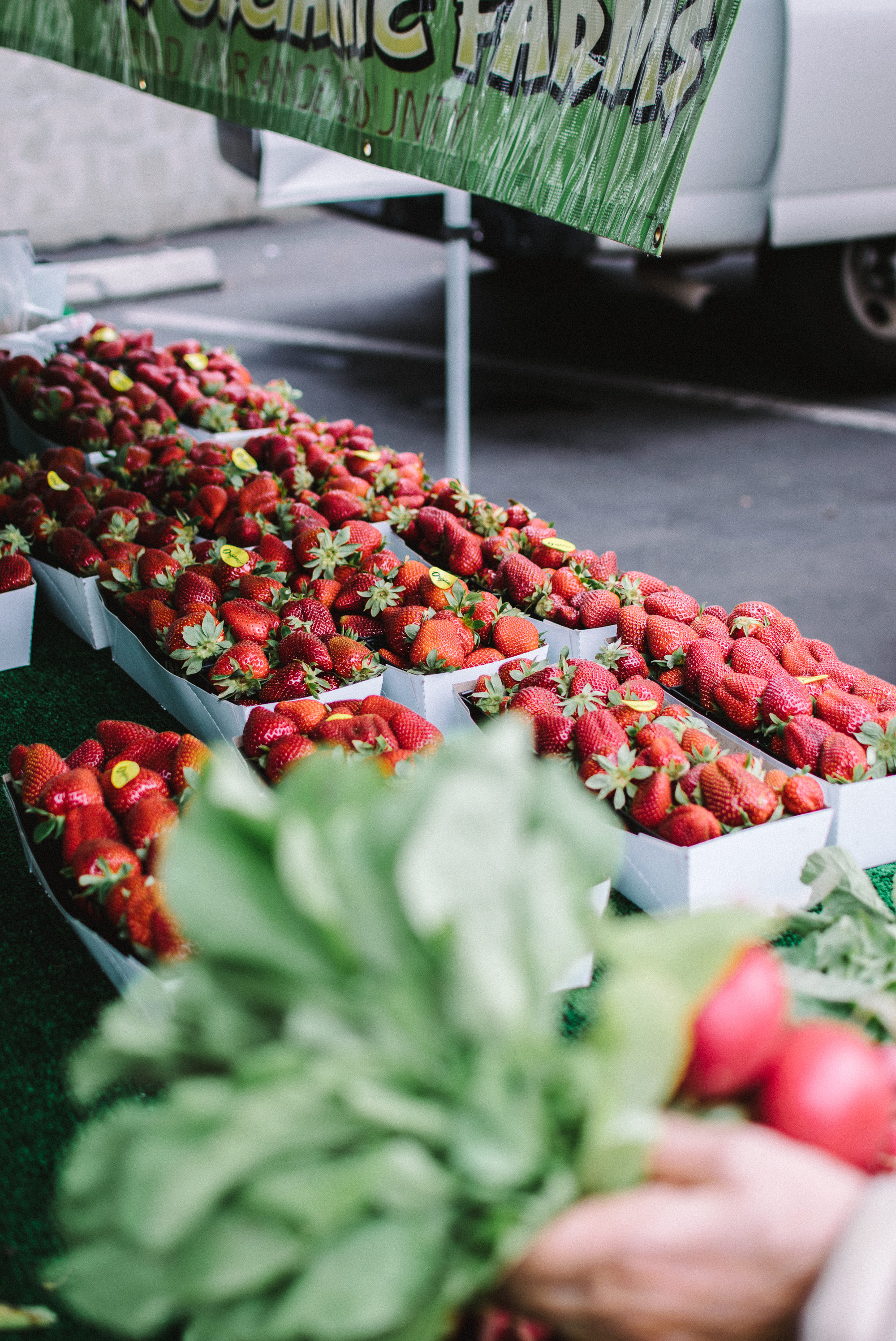
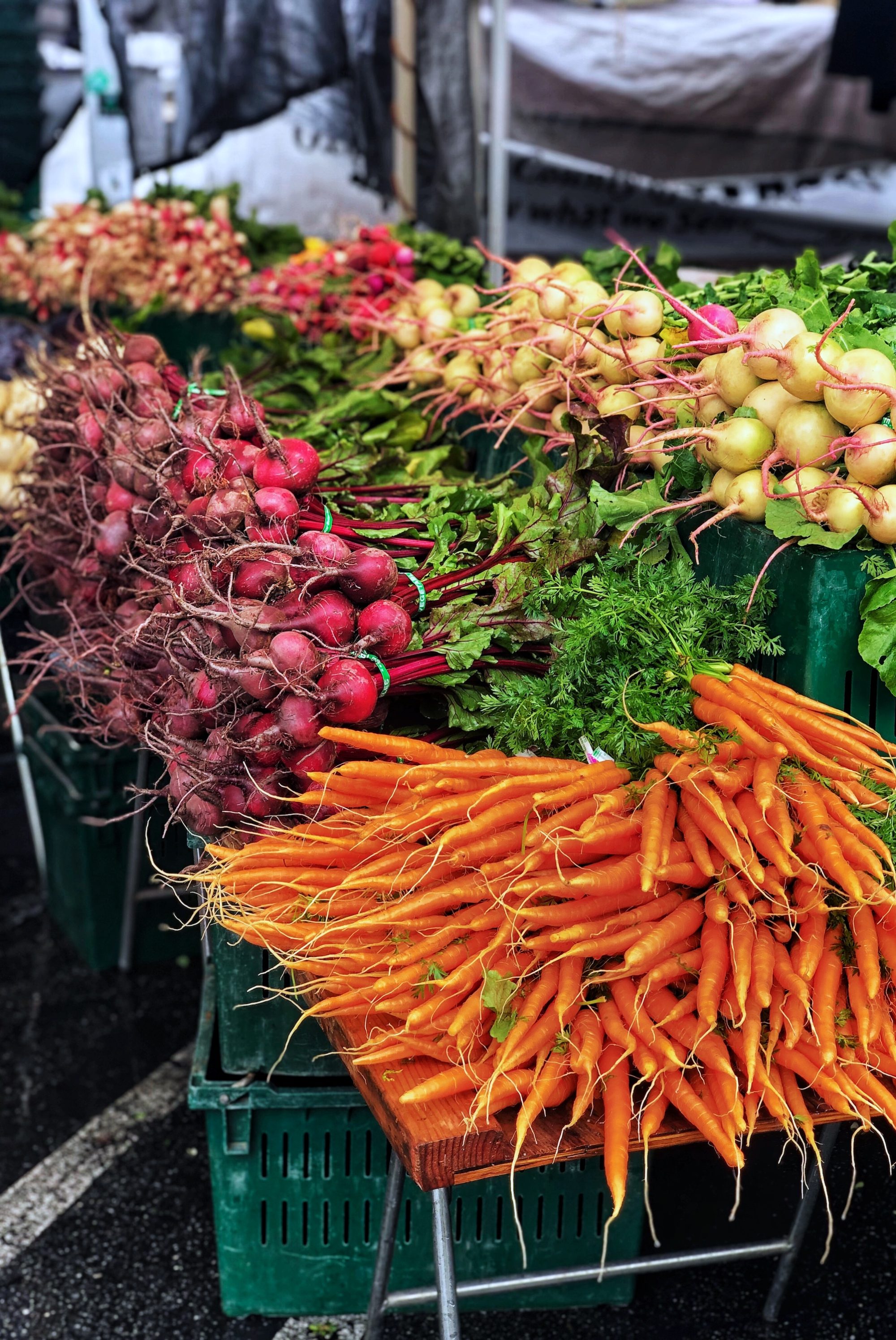
You mentioned that you started learning about food pathways and systems in your first year of college. Was that when you first became aware of the term “food desert,” and that you had grown up in an area that would qualify as such?
Exactly. My first time knowing what that was as a term was during my first year, during these deliberative dialogue sessions. It wasn’t a lecture where a smart person was telling you what they think. Instead, there was a question of the night, and everyone in the room had to put their minds together to come up with the answer. So it was a really transformative experience for me, and we covered things like food and the pharmaceutical industry, and entertainment, and where money comes from. I was learning a lot at a really rapid pace—every time I left my mind would be blown.
And in the course of attending those, I found out what a food desert was, and I also learned about urban agriculture. It’s how I found out about Will Allen’s work. He’s a man who started a facility that grows a million pounds of food year-round on three acres of land in Milwaukee—even during snow storms. So I found out about food deserts, but I simultaneously learned that they didn’t have to exist—that there was no reason everybody couldn’t have quality food. That was a big turning point for me.
You started SÜPRMARKT in 2016. Did you have a background in community organizing? How did you figure out the logistical and sociopolitical pathways to help people in South Central access fresh food? How did you know how to navigate this and tap into the resources in the community that you needed?
I think it’s important for people to know that you don’t always have to know how to do something, you just have to want to do something. That’s a really big part of SÜPRMARKT’s story: We didn’t have any experts on our team, we didn’t really have a great deal of infrastructure. It did help that I had some of the experience I had from my education, and I knew how to get what I wanted from different experiences growing up. But the biggest takeaway is that the most important part of getting something done is wanting to get it done, and being willing to stick by something until it’s done.
To provide more depth, a few things triggered SÜPRMARKT happening. One of them was that I was living somewhere where I had to be on the bus two hours every time I needed to get food. I was transitioning to a raw-vegan diet, so it became a really clear contrast. I had worked with a community farm when I was in college in DC, and things like that, and I knew what the challenges were, but it wasn’t in my face until I was back in my old neighborhood and I needed fresh fruits and vegetables to eat. That was one piece.
The other piece was that I had started meeting with a couple of friends on a weekly basis. We would watch documentaries, prepare an organic vegan meal, and try to work on projects that could help solve the world’s problems. I was helping expose them to organic vegan food and helping them to eat healthier and go vegan. One of the biggest pushbacks was like,”Oh, this is too expensive.” I really got frustrated with the fact that once I do get to the grocery store, wherever it is, I have to ask myself if I can afford an apple, or if I need to buy a pound of almonds, that it’s up to someone else what they’re going to charge me. If they say it’s $16 a pound, then it’s $16 a pound. I really wanted food sovereignty for myself and my friends and my community. I wanted to be able to say, “Let’s all put two bucks in and we can buy a case of tomatoes,” instead of paying $2 for one organic tomato.
Another piece was that I was working with a raw food manufacturer. And because I would go with him to get produce, I would see what the prices were on cases of food, and how some food, if it’s imperfect, would be discounted even though it’s organic. They wouldn’t be able to sell it in the same way. I realized there’ve been so many times I’ve struggled in the grocery store, and it made no sense. If they were willing to sell completely edible organic produce for less, then more people could have it.
The last big piece was that people I cared about were starting to pass away from preventable diseases. It went from being a statistic that we’re familiar with our entire life—knowing that we’re more prone to heart disease, diabetes, cancer, things like that—to being something I needed to do something about and something that affected me. I don’t want to continue to watch people in my life pass away at early ages—40, 50, 60 years old—and I also don’t want to be going to my friends’ funerals when we’re fifty.
Were there models in the community that you looked to for inspiration?
The biggest inspiration I had was Will Allen, but that was different because that was about growing food. I was familiar with Ron Finley’s work, and right before SÜPRMARKT started, I reached out to him because there was a space I knew of that I wanted to see about starting a community garden there. But it’s not like there were people doing things that I could look to for advice. It was us figuring things out as we went along, for the most part.
And do you see SÜPRMARKT as the kind of program that could be successful in any food desert in the country?
That’s totally the intention of what we’re doing, is to first eradicate food deserts here, because if there shouldn’t be a food desert anywhere it’s LA, seeing as how so much of the country’s food is grown in the state. We want to work really hard to eradicate food deserts here and show people it can be done. And then we want to replicate the model in other places and inspire other people to start replicating the model as well.
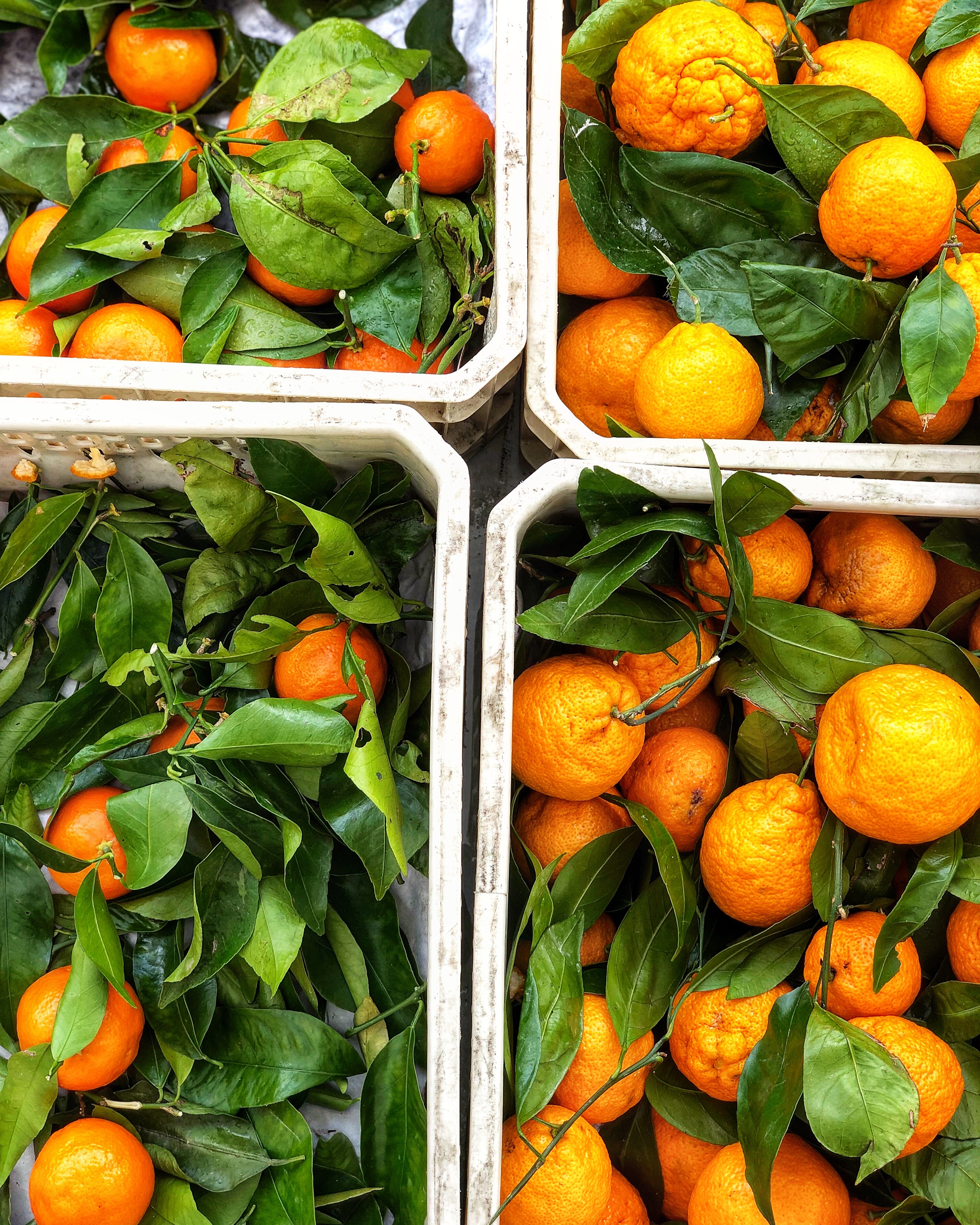
You mention the decision to ramp up your already exceptional level of service and activism in your community upon learning of the death of Nipsey Hussle. As a white woman in LA—all too aware of how easy it can be to live within a specific bubble of privilege—I was deeply disheartened that I didn’t know about Nipsey, or his legacy, until after he died. It seems to me that much of the challenge with opening pathways to equitable systems of fresh food has to do with information being sequestered or siloed, kept out of media consumed by white people, or people of a certain socioeconomic level of privilege.
This also means that many people don’t understand what food deserts are, or how close they live to them. For people in LA, you’ve created a clear pathway to forge change and provide fresh food to a community in need. For people outside of LA—around the country—how would you recommend they educate themselves about food deserts near them, and find ways to support campaigns and projects like #KeepSlausonFresh?
It’s important to number one: care, and number two: listen. There are a lot of elements that go into this, but the class structure that we live in, it’s such a set up in so many ways. People who are from these communities don’t have a chance to tell their stories. They may be seen as unprofessional, or—we’re just really good at ignoring people if they’re poor, and if they’re black, and if they’re a minority. It’s been set up this way for a really long time.
One thing that I’m really grateful for is that the Broken Bread tv series is helping to highlight, in Los Angeles, people that are doing exceptional and exemplary work. For example, Dough Girl is a pizza place in the Valley that was started by a woman who was in prison. When she came back to her community, she got an apartment to house the young people who were working in her cafe—people who have trouble with drugs, or don’t have anywhere to go, or are facing homelessness. I literally wouldn’t have known she existed in my own city if I hadn’t seen her on the show that we’re also on. So I appreciate Broken Bread for helping to tell our story and show people what we do and what we’re going through. I applaud Tastemade for partnering with KCET to make that a reality.
We need more people willing to tell stories that are not their own, and letting those people tell their stories in an authentic way as opposed to in a sad way—like when [news outlets] show relief efforts in other countries, and it’s the rescuers telling someone else’s story. Less of that.
As far as why people don’t know about food deserts near them, a big part is that you have to live there as an adult—and as an informed adult—to know. I lived in a food desert my whole childhood but I wouldn’t know; I thought whatever I had access to was normal. When you grow up in a place like that, it’s normalized in a really big way. I’d bring a pear over to a friend’s house, and they wouldn’t know what it was. It’s not that they’re stupid—we have the same education—but they live a different experience, they didn’t get the same exposure.
There’s just a lot of work to be done as far as people knowing what it’s like to live in a place. You can read as many statistics as you want but it’s not until somebody who’s used to going to Trader Joe’s doesn’t have a Trader Joe’s to go to that they understand why it’s a problem.
Is there anything you wish people would ask you about that they don’t?
For people who are not familiar with what food deserts are, or people who are, I want to stress the importance of what we’re doing. I want people to know that this is important for all of us, not just one neighborhood in LA—even though millions of people live there. This is important for everyone, because when we are able to provide access to healthy food for everyone in this country, we’ll be getting ahead of billions of dollars worth of health care costs. America spends a billion dollars a day on preventable health care, largely focused in the types of areas we serve.
There are a lot of things we feel like we can’t control, but we can control what we put in our mouths, and we need to make sure everyone has the ability to control what they put in their mouths and what they eat. Because it’s the most fundamental form of resistance: It starts through food, and if you can’t change your diet, your personal habits, for the better, there’s no way you can change the world if you can’t even change how you live your own life. This will help change health outcomes for millions of people in South Central and will ripple to have an effect on millions of people around the country and around the world.
Back the #KeepSlausonFresh campaign to fund a SÜPRMARKT grocery store in South Central LA today.



